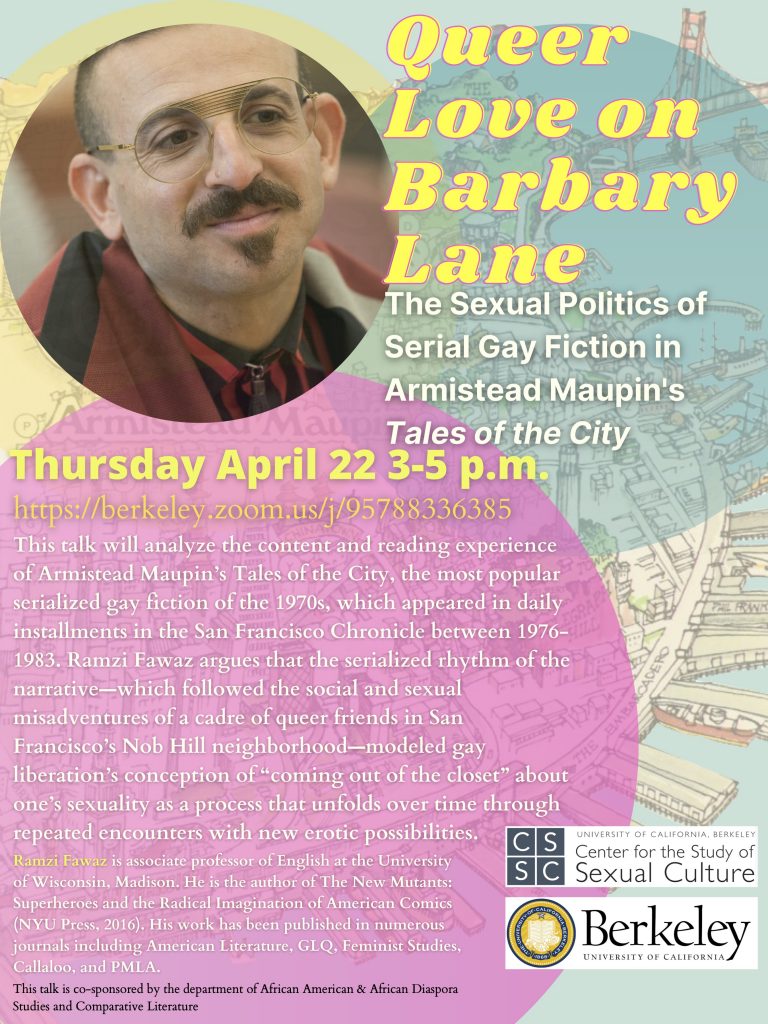This past Spring CSSC had the pleasure of hosting Ramzi Fawaz’s talk, Queer Love on Barbary Lane: The Sexual Politics of Serial Gay Fiction in Armistead Maupin’s Tales of the City.
If you would like to watch a recording of the talk, please email cssc@berkeley.edu.

Below is a description of the talk:
In this talk, I analyze the content and reading experience of Armistead Maupin’s Tales of the
City, the most popular serialized gay fiction of the 1970s, which appeared in daily installments
in the San Francisco Chronicle between 1976-1983. I argue that the serialized rhythm of the
narrative—which followed the social and sexual misadventures of a cadre of queer friends in
San Francisco’s Nob Hill neighborhood—modeled gay liberation’s conception of “coming out of
the closet” about one’s sexuality as a process that unfolds over time through repeated
encounters with new erotic possibilities. I draw upon interviews I conducted with actual San
Francisco readers of Maupin’s original text alongside close analysis of the rhetorical and literary
modes of address that Maupin deployed to make “coming out” a widely accessible form for
articulating one’s sexual and social desires, regardless of one’s specific sexual identity. I show
the story’s unfolding narrative about 1970s queer social life and the actual experience of
reading it daily alongside other San Francisco residents helped disseminate the radical sexual
politics of gay liberation to both gay and straight audiences alike.
Ramzi Fawaz is associate professor of English at the University of Wisconsin, Madison. He is the
author of The New Mutants: Superheroes and the Radical Imagination of American Comics (NYU
Press, 2016). His work has been published in numerous journals including American
Literature, GLQ, Feminist Studies, Callaloo, and PMLA. With Darieck Scott he co-edited a special
issue of American Literature titled “Queer About Comics,” which won the 2019 best special
issue of the year award from the Council of Editors of Learned Journals. His new book Queer
Forms explores the aesthetic and imaginative influence that movements for women’s and gay
liberation had on U.S.-American popular culture in the 1970s and after. Queer Forms will be
published by NYU Press.
This talk is co-sponsored by the departments of African American & African Diaspora Studies and Comparative Literature
